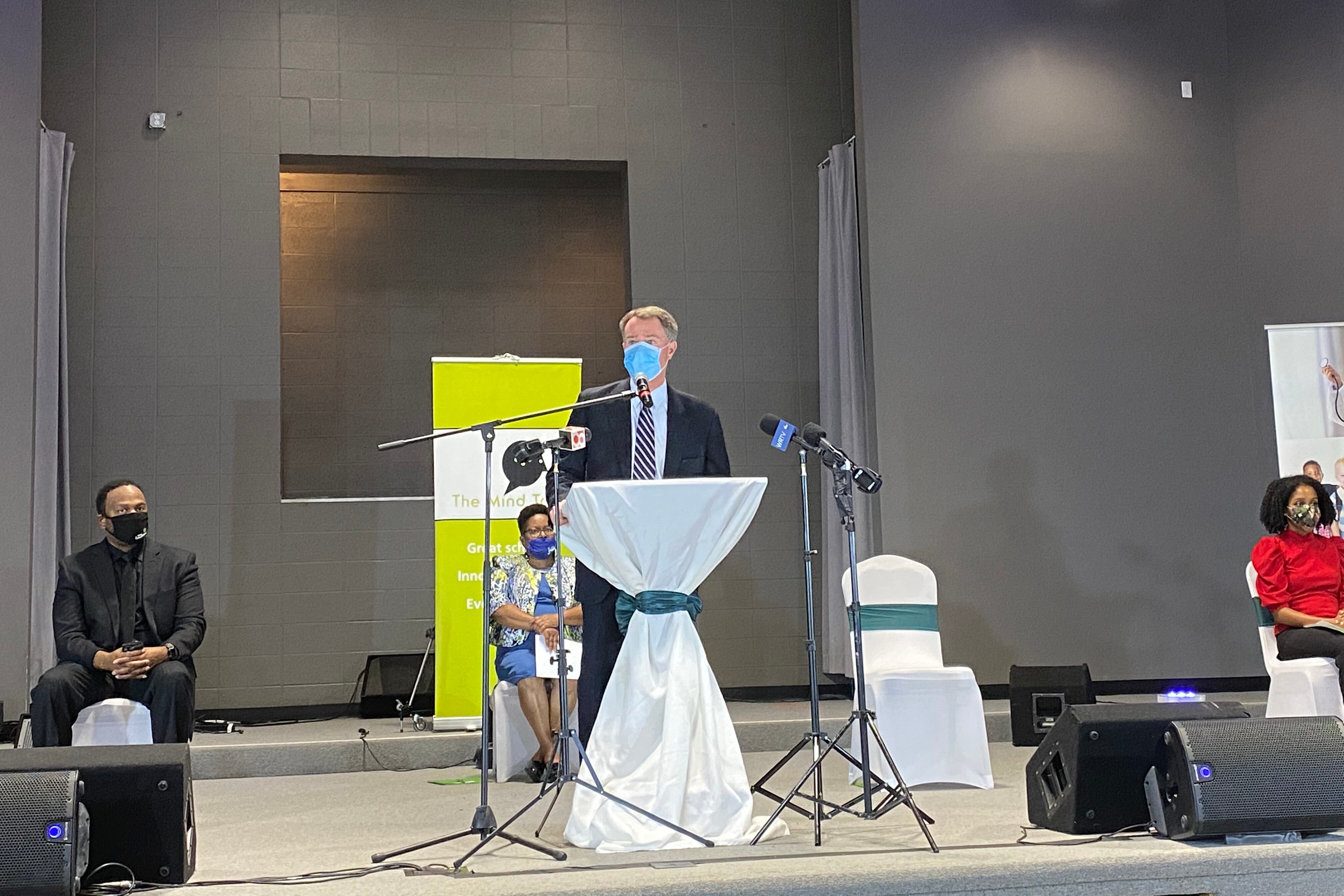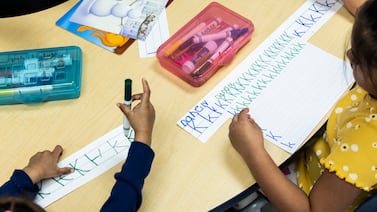The Indianapolis mayor’s office and the non-profit Mind Trust are contributing $88,000 to keep three community sites open until Dec. 17 to provide supervised learning support for students who are attending school remotely.
The Mind Trust had launched 11 “Community Learning Sites” with partners in August to help children of working-class families who needed supervision and support when school reopened only for virtual learning. Four learning sites opened later. Together, the sites serve several hundred students attending “virtual learning pods,” but are funded only through mid-October.
The additional funding — $24,000 from the city and $64,000 from the Mind Trust — will keep three of the centers open through the fall semester.
Although students in most districts are heading back to classrooms, families may choose to continue virtual learning. About 20% of Indianapolis Public School students chose that option, according to the Mind Trust. The funding announced Thursday will provide supervision for remote learning for up to 130 students in the Indianapolis area.
The sites that will serve students into December include the far east side’s Reset Center on North Post Road, Cornerstone Lutheran Church on the near east side, and Christamore House in Haughville. One center, VOICES Corp. in Fountain Square, will stay open until the end of October. The other learning sites will close Friday.
Lauren Peterson, the senior director of community engagement at The Mind Trust, said there is a need for continuing these learning sites, especially among the Latino community. The learning sites provide a safe place for children to study and attend remote classes while parents work.
“We’re just working alongside school districts, school systems to help offset for those parents who are still saying, ‘You know what, I don’t know if I’m comfortable just yet with bringing my child to school,’” Peterson said.
The learning pods also offer a smaller, more personalized learning environment for students.
The Reset Center, for example, has large tables where groups of five to 10 students can sit at safe distances. The center also has different rooms where the students can learn. Peterson said up to 50 students can learn at The Reset Center and at Cornerstone Lutheran Church, while up to 30 students can learn at the Christamore House. The learning spaces are all on a city bus line as well.
The Mind Trust staff wanted to make sure space was available for families, especially if campuses shut down again, said Kateri Whitley, the organization’s communications director.
Even though many school districts across the country are providing in-person learning options for students, school districts that mostly serve students of color were more likely to start remotely, according to a recent analysis conducted by the Associated Press and Chalkbeat. In a survey of 677 school districts, 79% of Hispanic students, 75% of Black students, and 51% of white students did not have in-person learning as an option.
In-person education has been phased in at some school districts like Indianapolis Public Schools and Washington Township schools. By Monday, classrooms will be open for all grades in both districts which both predominantly serve Black and Latino students. The two corporations were the last to offer in-person instruction in Marion County.
“The city is determined to ensure that any student from any background, from any ZIP code has access to a safe environment in which to learn,” Mayor Joe Hogsett said. “In doing so, we not only preserve a student’s education, but we ease the burden on working parents.”




